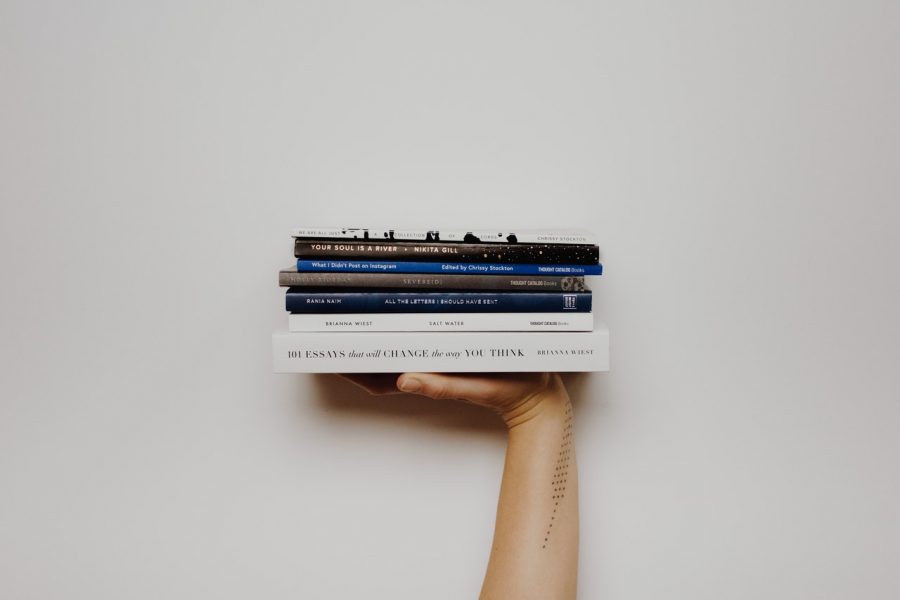Soter: Let’s Read More in 2021
January 9, 2021
“You’re never alone when you’re reading a book,” said Susan Wiggs.
From the moment I learned how, reading has always been the activity that brings me the most joy. In my mind, it is humanity’s greatest superpower. It is through reading that you can be wherever, whenever and whoever you want all at once. If that’s not magic, I don’t know what is. So, I encourage every University of Utah student to be transcendent this year: read more of what interests you and read for you — and joy will follow.
Read for Yourself
I frequently hear from my friends and peers that because we often read for school, it now feels like a chore — something to avoid. We read because we need to graduate, we graduate to find work and we find work to make money and the rest will follow. But I can’t help wondering — is there more than that? What about the small things that bring joy? The way I see it, the money, the work, the schooling — none of it is worth anything without self-exploration, individual curiosity and personal knowledge. Without these things, we cannot grow to enjoy the things we might get as a result of our schooling. This is the difference between a person who has to read as means to an end, and one who sees reading as the end itself.
But beyond all that gushy philosophical stuff, reading is important for our overall well-being too.
For instance, reading has been proven to actually reduce stress. A 2009 study found that reading reduces stress levels by up to 68%, which is more than many other activities we associate with tranquility. It makes us more positive and decreases depression. And, above the psychological benefits, reading has actually proven to make people more empathetic. When we read, we have an experience that we would not otherwise be able to have. The more you read, the more you experience and the more empathetic you will become.
Read for Your Community
With vaccines on the way to put an end to COVID-19, we’re closer than ever to returning to some semblance of normalcy. That said, with the high case counts Utah is seeing, it is more important now than ever to isolate and social distance — and as it turns out, getting lost in a good book is the perfect way to spend the final months of the pandemic. Not to mention, reading has proven to decrease pandemic stress. So, go find a good book. When you think about it, it’s the closest you can get to humanity right now while remaining safely apart away from it.
And while the tumultuousness of 2020 has ended, I find myself reflecting on the turmoil it brought, but I’ve also reflected on what I’ve learned. Things like it’s okay to be alone, voting is empowerment and it’s never a bad idea to wash my hands. On a deeper level, I’m reflecting on the assumptions that I made in 2020. Assumptions about my peers, my government and my society. Are they correct? No — they require more curiosity, knowledge and growth. I’ve found that the best way for me to assert my assumptions’ truth is to read. Because, if nothing else, this year has proven that knowing a little information about a topic is far more dangerous than knowing nothing at all.
There have been countless examples of people taking firm stances on a topic without the benefit of knowledge. Considering the fragmented information we are constantly receiving from social media, it is no surprise. Through reading we gain a depth of knowledge, whereas TV and social media are more often provide shallow, subjective and prejudiced blurbs of information. There are enough books out there to give us every perspective on every topic one could imagine. And, when our claims have genuine merit, then positive change will occur.
Reading Goals for 2021
It’s important to note up front that I am far from a literary critic, but I do have a few recommendations that have helped me grow from the hardships of 2020, and look forward to a kinder, more compassionate and — hopefully — somewhat more normal 2021.
First off, for the fiction-lovers reading this, I urge you to read “Station Eleven” by Emily St. John Mandel, which is comically relatable to the reality we’ve been experiencing for almost a year. And for the non-fiction lovers who are on the hunt for something that doesn’t hit quite as close to home — but is not at all less rewarding — Malcolm Gladwell’s newest novel “Talking to Strangers” gave me a newfound sense of compassion for the people I don’t know. If neither of these sound like reads that will captivate you as easily and quickly as they did me, you can also check out a number of websites to help you find the book you didn’t know you were missing.
Of course, what you really must remember is that the question of “what to read,” is irrelevant. What is relevant is that you read about a topic that you care about, are interested in and that has the ability to help you grow into the person you want to be. As 2021 begins, don’t forget to find joy — don’t forget to read.








